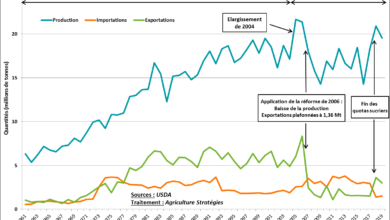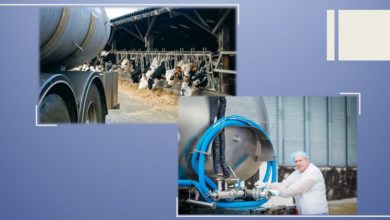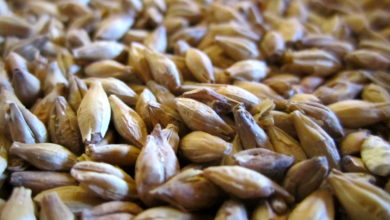
Download the PDF version
New step in the dispute between the EU and the United States over anti-dumping taxes on Spanish table olives, which continues to question the status of CAP decoupled supports. Despite WTO requirements and European recriminations, Washington persists in maintaining these taxes, five years after their introduction. Beyond the weakening of the Spanish olive sector, for which the United States is the main export destination, the behavior of the United States shows once again its disregard for international rules. This could be a serious precedent for European exports subsidized by decoupled CAP payments.
A dispute that gets bogged down
The decoupling of CAP subsidies was introduced in 2003, at the beginning of the Doha Round of WTO negotiations. Believing that coupled payments were dangerous because they encouraged productivism and budgetary imbalances, the European Union also hoped, through this gesture of goodwill, to be able to go further in the agricultural trade liberalization. Multilateralism, which was in vogue at the time, aimed to allow WTO member countries to trade goods of all kinds among themselves, while respecting rules common to all and adapted for developing countries. In return for the inclusion of the agricultural sector in this trade, particular attention was paid to the form of public support for agriculture and public storage. Thus, stocks and aids that constitute production incentives and/or affect prices had to be reduced. CAP payments have been largely converted into decoupled aids, not targeted to specific productions, with a fixed amount allocated to the area, whether cultivated or set aside, thus making it possible, according to the underlying theory, not to constitute a source of distortion of competition.
The main reason for decoupling CAP support is therefore to comply with WTO rules, which went even further than the requirements of the time, in an attempt to encourage our trading partners to follow the path of greater multilateralism. Despite a quick fading of these same hopes, since this round of negotiations never came to fruition and the signing of bilateral agreements took over multilateralism, decoupled support has made up the main part of the CAP’s direct payments since 2006. However, in 2018, the United States considered that the decoupled subsidy allocated to Spanish table olives was a source of competition distortion.
The Americans thus considered that their producers were disadvantaged compared to Spanish producers who received support. Therefore, they introduced anti-dumping taxes and countervailing duties, aimed at re-establishing what they considered to be fairer competition between Spanish and American olives. At the time, we had explained the threats that this measure posed to all of the CAP’s decoupled aid. The EU reacted by taking the matter to the WTO’s Dispute Settlement Body (DSB) to challenge the implementation of these measures in early 2019. We feared that the EU would lose this procedure, opening the way to taxation of all European agricultural exports.
Box: history of the EU-US dispute over anti-dumping and countervailing duties on Spanish ripe olives
2018: US implements anti-dumping and countervailing duties on ripe olives from Spain
January 29, 2019: EU requests consultations at the DSB
December 20, 2021: adoption of the DSB report, which calls on the US to comply with international trade rules
January 19, 2022: US announces its intention to implement the DSB recommendations
July 2022: US and EU agree on a “reasonable period of time” for the US to implement the DSB recommendations and rulings, which will expire on 14 January 2023. U.S. Department of Commerce initiates DSB implementation process
January 16, 2023: US announces compliance with DSB recommendations
January 27, 2023: EU announces its disagreement at the DSB meeting and considers that the US has not fully complied with the DSB ruling
May 2, 2023: EU initiates appeal and request for consultations at the DSB
The immunity of decoupled payments challenged
What has happened since? The DSB issued its report in December 2021[1], and far from the simplistic claims of the media that would have liked a winner and a loser, its conclusions are quite complex. It finds out that some of the taxes implemented by the US are justified and others are not, and most importantly, it rejects the EU’s position that decoupled support is indisputable.
The panel thus agrees with the US on anti-dumping taxes but not on countervailing duties. Both types of taxes are applied to imported products – in this case, olives from Spain – but they have two distinct purposes:
- Anti-dumping taxes are applied when a country considers that a product is being exported to its market at a price lower than the price in the product’s country of origin, and is causing injury to producers in the importing country.
- Countervailing duties, on the other hand, aim to compensate for subsidies from which an imported product benefits if these subsidies are specific, i.e. targeted at producing companies in the country of origin.
The WTO does not prohibit dumping, but it does allow states to impose anti-dumping duties if they can prove that the practice is causing harm to domestic producers. In the case of Spanish olives, the DSB considered that anti-dumping duties were applicable. The arguments of the EU, which had accused the US of not having correctly assessed the volumes and prices of Spanish ripe olives used to demonstrate the existence of dumping, were not accepted by the DSB.
On the other hand, the DSB ruled that the United States did not have to apply countervailing duties, thus saving decoupled support… for now. In order to apply these countervailing duties, the United States had to be able to demonstrate that the subsidy was production specific and to calculate precisely the amount of this subsidy, which constitutes a benefit for the companies concerned. The DSB criticized the United States for having used an inadequate method for calculating subsidy rates, and for having misinterpreted some mechanisms for calculating decoupled payments. The United States also considered (on the basis of a U.S. trade law, the section 771B of the Customs Act of 1930) that the benefits of the subsidies received by olive growers are directly transferred to olive processors (those who export olives to the United States), without proving it. It was because of these errors that the DSB finally ruled that the countervailing duties were not justified.
However, decoupled aid could still be subject to retaliation: in its report, the DSB agrees with the United States and considers that the decoupled aid received by Spanish olive growers can be specific, i.e. targeted at a group of producers, by expressly excluding other companies from the possibility of receiving the same level of subsidy. The US had based its argument on the fact that the decoupled support received by olive growers under the CAP was calculated on the basis of the levels of former coupled subsidies, therefore specific to olive growers (like all decoupled subsidies, which were based on the history of premiums received previously, coupled to production). This calculation results in differentiated support levels linked to historical olive production during the reference period of the CMO program[2], which therefore correspond to specific support for the DSB, since it is necessary to be a historical olive producer to benefit from this level of decoupled support.
But what finally saves decoupled subsidies is that since this implementation of decoupling, new olive producers have obtained decoupled payments even though they had no historical reference, that olive producers can receive decoupled payments from transfers from farms that did not grow olives historically, and that producers can benefit from high decoupled payments linked to their historical olive production, even though they have stopped producing olives.
This particularity of the decoupled payment system could yet be questioned in the case of olives. This is a perennial crop, whose cultivated area has changed relatively little since 2006[3]. New plantings on non-historical olive farms and uprooting are therefore expected to be limited, which may lead to the view that the majority of subsidies remain historically linked. As the convergence mechanism, which smoothes the value of decoupled payments based on history towards a national average (all areas combined), is not very advanced in Spain, the DSB did not consider this to be a sufficient argument to consider that payments to olive growers are no longer specific.
US disregard for DSB findings
The DSB’s conclusions are of major importance. They find that decoupled payments can be a source of dumping, and also that decoupled support could be considered production-targeted, even though the US has failed to prove this.
In theory, the US, like the EU, could appeal the DSB report if they disagreed with points of law. However, the permanent appellate body of the DSB, in charge of appellate arbitrations, has been blocked since 2019 by… the United States. They are preventing the appellate body’s judges renewal, which must be decided unanimously by the WTO members. This is a means of pressure for the Americans, who believe that the DSB exceeds its initial competences (judging facts and not only respect for the law) and that the WTO needs an overall reform.
But neither party chose to appeal in the case of Spanish olives. If we look at the statements made by the United States following the publication of the report, we can assume that it was in their interest to see decoupled support put in the spotlight[4]. In return for this political gain, the US had to comply with international regulations before January 14, 2023, the deadline decided jointly by the EU and the US.
But instead of removing the countervailing duties as agreed, the US reworked its method of calculating the subsidy rates by interviewing the companies concerned, and finally maintained them, although their level was lowered as a result of the new calculations[5]. In their final conclusions, the panel considered that the offending US trade law, although found by the DSB to be WTO-inconsistent, still allowed sufficient administrative flexibility to overcome the panel’s concerns about WTO incompatibility.
Back to square one for the EU
While U.S. olive growers welcomed the U.S. resolution, one wonders if Greek olives will soon be subject to the same treatment given the growth of these exports towards the US. On the Spanish side, growers were dismayed: since the implementation of the taxes, the volume of table olives exported to the United States has been decreasing every year and growers claim to have spent millions in legal fees. To make up for their losses, they will only be able to rely on existing tools (rural development funds, state aid…), said the European Commission[6], which still wants to continue to oppose the tariffs imposed by the United States. After expressing its disagreement with the DSB on how the US “complied” with the January ruling[7], it has just recently requested consultations[8].
The DSB will therefore start again and re-examine the case, to which will be added the additional arguments of the United States in favor of maintaining countervailing duties. This is a risky step for the EU, which is focusing its attack on the incompatibility between the US’s own trade law, which it is using in its argument, and WTO rules, rather than on the resulting countervailing payments. A direct attack on these rights would entail the risk of the DSB ruling in favor of the United States this time, with the consequences that we had already described when the procedure was opened on the threat of all European decoupled aid.
Conclusion
Even if the DSB ruled against the USA on the countervailing duties on Spanish olives, their continuation is a worrying message for other European productions benefiting from the decoupled payments of the CAP. Beyond the direct consequences for Spanish olives, this case shows the disregard of the USA for WTO rules and the DSB, whose conclusions they ignored, and a willingness to question decoupled payments, whose dumping effects have been noted by the WTO and implicitly accepted by the EU.
Beyond this conclusion, this case has created a lasting breach in the underlying principles of the current CAP which will now be extended until 2027, namely the primacy of decoupled subsidies, which still represent most of the support provided by the CAP to farmers.
It adds to increasingly important questions about the CAP effectiveness compared to budgetary efforts of other major producing countries and the relevance of depriving ourselves of an agricultural policy guiding tool, at a time when food security and food sovereignty are once again becoming dominant strategic objectives.
Decoupled payments thus rhymes with disembodied aid, which should have favored a more lenient judgment by the WTO. Regardless of the criticisms levelled at the United States, it remains that, besides being globally ineffective, they may tomorrow be considered as distorting support.
In short, by wanting to be the good student in the WTO class, but also by having set up a means of progressively reducing the CAP budget, thanks to the disconnection of support from economic reality, Europe is losing out on two fronts: the current CAP usefulness for the future of European agriculture and its competitive advantages in the international power game.
It is really time to build a new CAP and to add a common food policy. This is what Agriculture Strategies is working on, based on the proposal we recently made (see https://www.agriculture-strategies.eu/2023/02/future-pac-agriculture-strategies-veut-la-reformer-avant-meme-sa-mise-en-oeuvre/) and which is already giving rise to discussions at both the institutional and agricultural levels.
Jacques Carles, President of Agriculture Strategies
Alessandra Kirsch, Director of Studies of Agriculture Strategies
Lore-Elène Jan, Agriculture Strategies consultant
May 10, 2023
[1] https://www.wto.org/french/news_f/news21_f/577r_f.htm
[2] Organisation commune des marchés dans le cadre de laquelle les producteurs d’olives étaient spécifiquement soutenus
[3] La superficie récoltée en Espagne a augmenté de 5,6% entre 2006 et 2021 d’après les chiffres FAO
[4] https://uploads.mwp.mprod.getusinfo.com/uploads/sites/25/2021/12/Dec20.DSB_.Stmt_.as_.deliv_.fin_.pdf
[5] https://www.federalregister.gov/documents/2023/01/19/2023-00930/ripe-olives-from-spain-implementation-of-determination-under-section-129-of-the-uruguay-round
[6] https://www.agra.fr/agra-europe/olives-espagnoles-washington-maintient-ses-droits-malgre-le-jugement-de-lomc
[7] https://www.wto.org/french/news_f/news23_f/dsb_27jan23_f.htm
[8] https://docs.wto.org/dol2fe/Pages/SS/directdoc.aspx?filename=r:/WT/DS/577-15.pdf&Open=True












